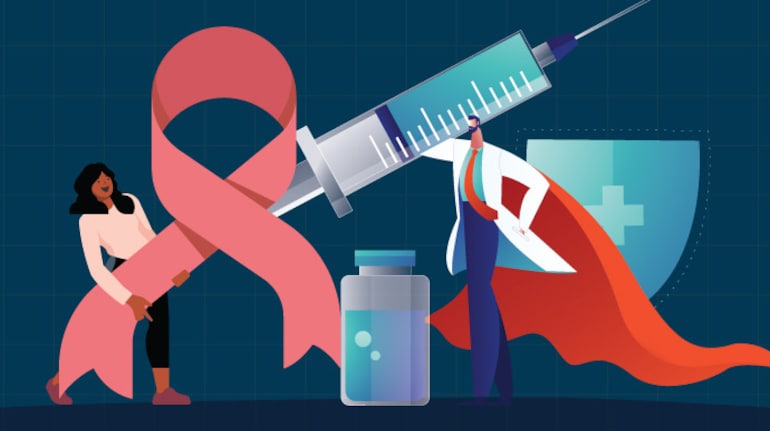



India is again witnessing a surge in COVID-19 cases but booster vaccination continues to be dismal.
The country registered 10,158 new Covid-19 cases on April 13, about 30 per cent higher than the day before, pushing the tally of active cases to 44,998.
The daily COVID-19 positivity rate has now also gone up to 4.42 per cent while the rolling average of the weekly positivity rate was 4.02 per cent, according to the government data.
However, the COVID-19 booster vaccination is yet to pick up despite repeated appeals by senior government functionaries to avail precautionary doses.
Low numbers
A look at the CoWIN dashboard, run by the Centre, shows that over the last two months, the daily uptake of booster COVID-19 doses in India has remained dismal, never crossing even 50,000 mark in a week.
It shows, for instance, that in the current week which started on April 8, only 689 COVID-19 vaccine booster jabs have been administered while in the week before, April 1-7 this number stood at 7,380.
The same pattern can be observed since February 11.
Overall, 22.72 crore COVID-19 booster vaccine doses have been administered in the country so far and less than 30 percent of those eligible may have received it.
As of now, while those above 60 years of age are entitled to avail free COVID-19 vaccines in government hospitals, adults between 18-59 years of age can only avail the vaccine in private COVID vaccination centres.
Due to low demand, a halt in production by various vaccine makers and slow procurement by the government, vaccines are largely out of stock in public hospitals, a fact the government does not want to accept on record.
Queries sent to Bharat Biotech and Serum Institute of India, two of the COVID-19 vaccine makers whose shots against coronavirus have largely been used in India, however, have not been answered till the writing of this report.
This copy will be updated when we receive the responses.
Sources in the government said that it was due to low demand of the vaccine in states over the last several months that had led to suspension of its procurement from vaccine makers.
“Vaccines have shelf lives and slow uptake results in expiry of vaccine which is wastage of crucial resources,” said a government official.
Those vulnerable should be boosted
On April 12, top sources in the government maintained that COVID-19 may have entered the endemic stage in India and cases are likely to rise for the next 10-12 days, after which infections may subside.
In an endemic stage, infection is restricted to a particular region whereas in a pandemic, the infection spreads to a bigger area or even worldwide.
However, while pointing out that deaths and hospitalisation during the current surge of infections have stayed low, the sources also said that the elderly, particularly people above 65 years, those with several underlying diseases and immune-compromised should get a booster shot.
Experts concur.
Dr Shahid Jameel, senior virologist associated with the University of Oxford, said that high levels of the primary series of vaccination-2 doses are likely to protect the majority from severe disease.
“But policymakers should seriously consider ways of increasing boosters. India has the options and must use them,” he said.
Discover the latest Business News, Sensex, and Nifty updates. Obtain Personal Finance insights, tax queries, and expert opinions on Moneycontrol or download the Moneycontrol App to stay updated!
Find the best of Al News in one place, specially curated for you every weekend.
Stay on top of the latest tech trends and biggest startup news.